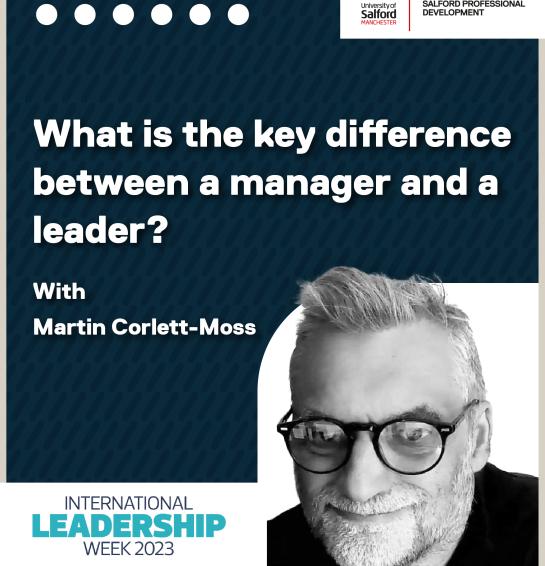What is the Key Difference Between a Manager and a Leader?
What is the key difference between a manager and a leader?
A manager's primary responsibility is to plan, organise, and control resources to achieve specific goals within an organisation. They focus on management styles that effectively manage people, processes, and systems to ensure operations run smoothly and efficiently. However, leadership involves a different approach, emphasising leadership skills and styles to inspire and motivate people toward a common goal. Leaders focus on building relationships, fostering trust, and cultivating a culture of collaboration within the organisation. They set a clear vision, communicate effectively, and empower others to act.
While there is some overlap between the roles of a manager and a leader, the primary difference between leadership and management lies in their approach to achieving organisational objectives. A manager tends to focus on controlling resources and optimising processes through specific management styles, while a leader uses leadership skills and styles to inspire and empower people to work together toward a common goal.
Understanding the difference between managers and leaders is essential for developing effective leadership in teams. By learning how to balance the responsibilities of both roles, individuals can become more proficient at people management, leading teams, and driving organisational success.
Here at Salford Professional Development (SPD), to celebrate International Leadership Week 2023, we asked one of our expert tutors to share their insights on the difference between a manager role and a leadership role, along with the key management skills needed to be a successful leader.
We interviewed Martin Corlett-Moss, Marketing Expert and tutor for our Directors Development Programme, Mini MBA in Business Leadership, and Digital Marketing Strategy Programmes.
What are the key differences between being a manager and becoming a leader?
Martin explained, "This is pretty simple to me; a leader is someone who has people who want to follow them. A Manager can manage, organise, and solve problems, but they can do it in isolation. A leader is judged by the people's willingness to follow."
What are the 5 most important skills a leader needs?
1. An understanding that you don't ask people to do things you are not willing to do yourself.
2. Being the first one to step up, to be the first into the breach as it were.
3. Empathy – being able to reflect on how what they do affects the people around them.
4. Reflection – being able to reflect on their own ability.
5. A key skill is a recognition that they do not need to be the smartest person in the room, some humbleness, and a willingness to empower people who are better than they are.
Who inspires you within your career?
Martin responded, "My boss when I was at Volvo – A leader whom I would follow. He learned, developed, and grew as a manager and leader. He was willing to learn from his mistakes and constantly improve."
Finally, in your opinion, what is the best way to achieve leadership and management skills?
Martin ended with, "From experience, watch and learn from the good and the bad around you. Read, learn, study, constantly study – you must assume you don't know it all. I learn from people with so much less experience than I have, all the time."
At SPD, we believe that continuing professional development is essential for individuals who aspire to excel in both leadership skills and styles and management skills. This continuous learning allows them to stay current with the latest trends, technologies, and best practices in their field and develop new skills and knowledge to navigate the challenges of people management and business leadership.
We offer a range of Leadership and Management programmes, non-accredited and accredited by the Institute of Leadership and Management (ILM), Chartered Management Institute (CMI), and Digital Marketing Institute (DMI).
Overall, by investing time in your career growth through professional development programmes, you can become better equipped to lead and manage others effectively, achieve organisational goals, and contribute to your company's or organisation's growth and success.


